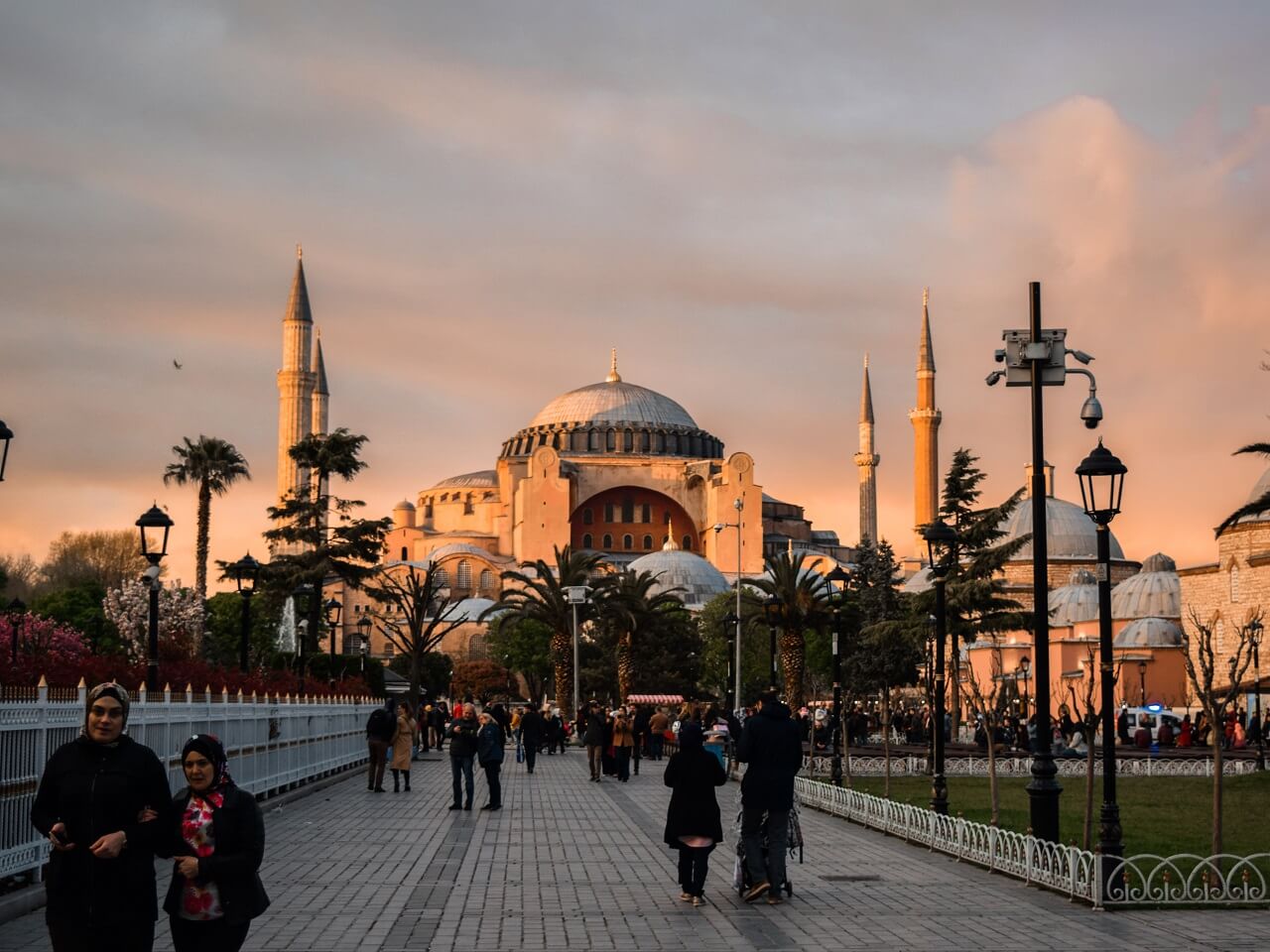I set off a year ago from London in a 20-foot racing sloop declaring — half jokingly — that I would reach Constantinople and liberate it from the Saracen. I am now sitting in a bar in Catalonia, and my chief concern is that the battle will be over before I can unleash my wrath upon the Golden Horn.
A curious historical phenomenon is that where a place is declared holy, it often remains so regardless of the confession of those who worship there.
Italy and Dalmatia are littered with churches that were once temples to Jupiter or Mithras, while the retreating Ottoman Empire surrendered several magnificent mosques to the flickering sacristy lamps and lacquered icons of Christians they had long governed. As a student, I used to attend the Candlemas Church of the Blessed Virgin — formerly the Mosque of Pasha Qasim — in southern Hungary.
President Recep Tayyip Erdoğan obviously senses Hagia Sophia’s abiding glory, or else he wouldn’t be appealing to his voters through it. His decision to represent the church as a mosque, however, does not follow any movement of history and gambles with his nation’s identity, pre-empting a victorious theocratic exegesis.
Turkey is a secular state, but the citizens could be defined as “Turkish-speaking Muslims” — much having been suffered in order to hold citizen and state together under these terms since the republic’s 1923 conception. Christian Turks have migrated to Greece, while Kurdish-speaking Turks — including Muslims — have faced decades of ethnic discrimination. But the modern Turk can at least consider his nation’s democracy unique in the Muslim world, while NATO’s patronage offers some token of “being in the Western club.”
Turks are also the stewards of a city whose imperium once carried the torch of classical antiquity from the collapse of Rome to the Renaissance. But having played Lord of the Manor for half a millennium, it is clear that they haven’t quite relaxed into the role. Their capital remains in Ankara. If Erdoğan hopes he can step into the emperors’ clothes by imposing Muslim prayer in Emperor Justinian’s cathedral for the support of his citizens, it is the last gambit of a cornered statesman. There are signs of that very 21st-century phenomenon of the establishment elite going one way while the silent majority go the other.
Turkey’s state-controlled media outlets are optimistic, but Islamic clerics themselves have expressed outrage. No wonder — their congregations now have to face that either religious or national Turkish identity can be ventriloquized by the other and must be a sham.
“It is clear from the name that Hagia Sophia is a Church” railed North Macedonian Mufti Khalil Jihad. Australian imam Nami Farhat — an outspoken supporter of Ayatollah Khomeini — had this to say:
You forcefully occupy a Church, turn it into a Mosque and then preach about mercy and justice! #HagiaSophia#Ottomanshypocrisy pic.twitter.com/tLui5ulGfZ
— Nami Farhat (@Sh_NamiFarhat) July 11, 2020
The clerics have understood something the Western outcry has entirely overlooked: it is not the Islamification, but rather the de-secularization of the Hagia Sophia that has sounded the trumpets.
Bien pensant Western liberals would rather any narrative than that which raises the old rites of civilization that put Hagia Sophia there in the first place. Fanciful as it may sound, concerns for “ecumenism” and “openness” belie that Erdoğan has unwittingly made the first step in that very direction. I once tried (and failed) to persuade an Oxford graduate that the building was not an example of Islamic architecture. But are we seriously to believe that the Turkish population themselves would not only write such nonsense into their own history, but do so in compliance with the cheap political motives of a president whom they nearly overthrew by force in 2016?
For the time being, opening the Hagia Sophia as a mosque seems, frankly, preferable to objectifying it as a dead artifact of history. Tourists will be treated to the authentic experience of being told to cover their heads and lower their voices when entering the building. But the only reason this lick of polish to the Turks’ captive jewel finds any hubris at all is because the Turks themselves know how brightly it used to shine. The Church of Holy Wisdom has heavy foundations, and the signs are that Erdoğan’s escalation can’t end here.
By restoring Hagia Sophia to its original Christian purpose, Turks can share in Constantinople’s glorious history, bear witness to their secular identity, avoid conflating the will of any God with that of their president, and snub the decadent West that patronizes them as a buffer against Christian Russia.
It’s one of these situations where, if they take initiative, the Turkish population actually stand a chance of having their cake and eating it. Poised to restore one of their finest pieces of real estate, they should act before someone else does. Constantinople won’t be taken through the ballot box.


